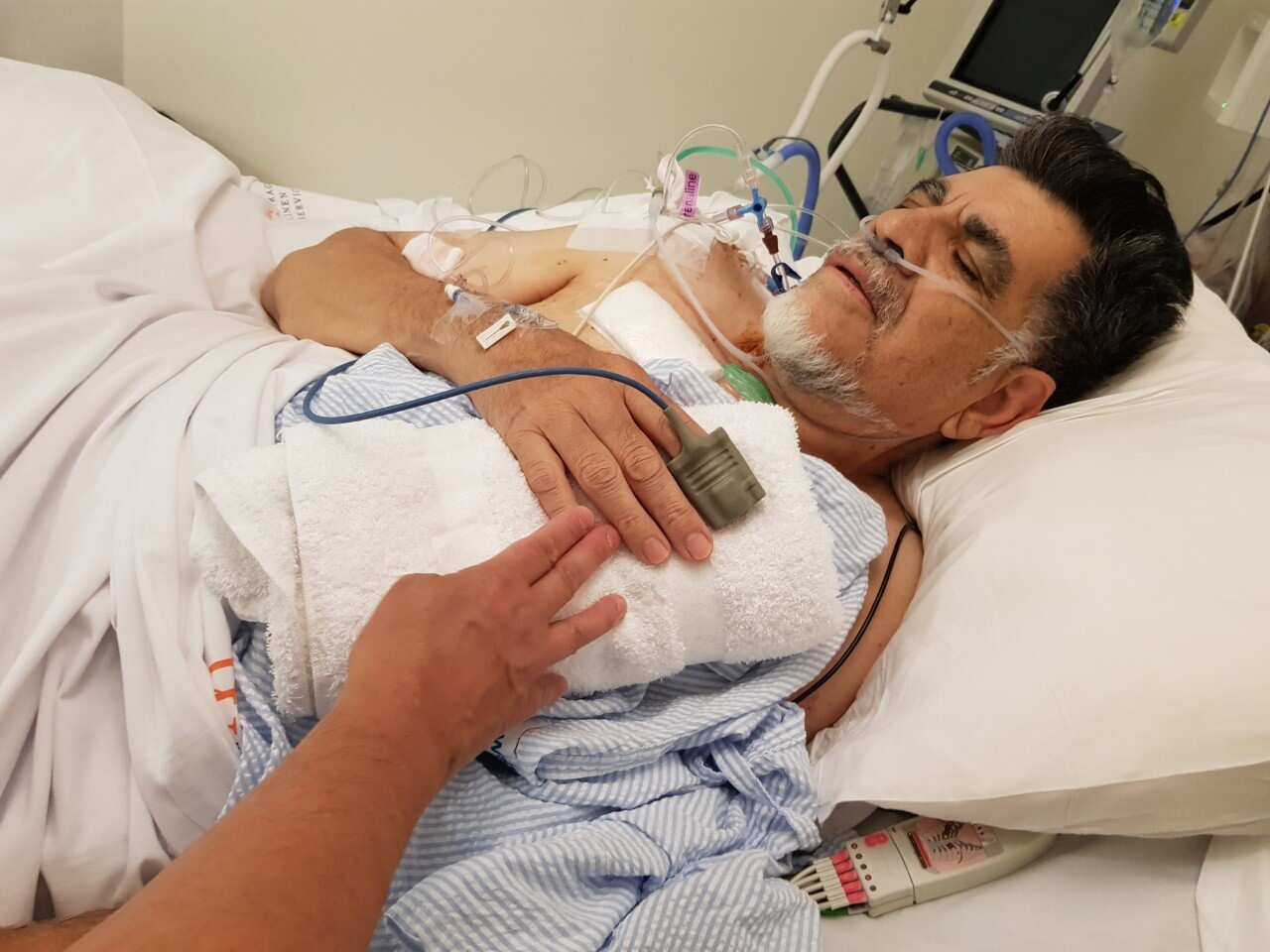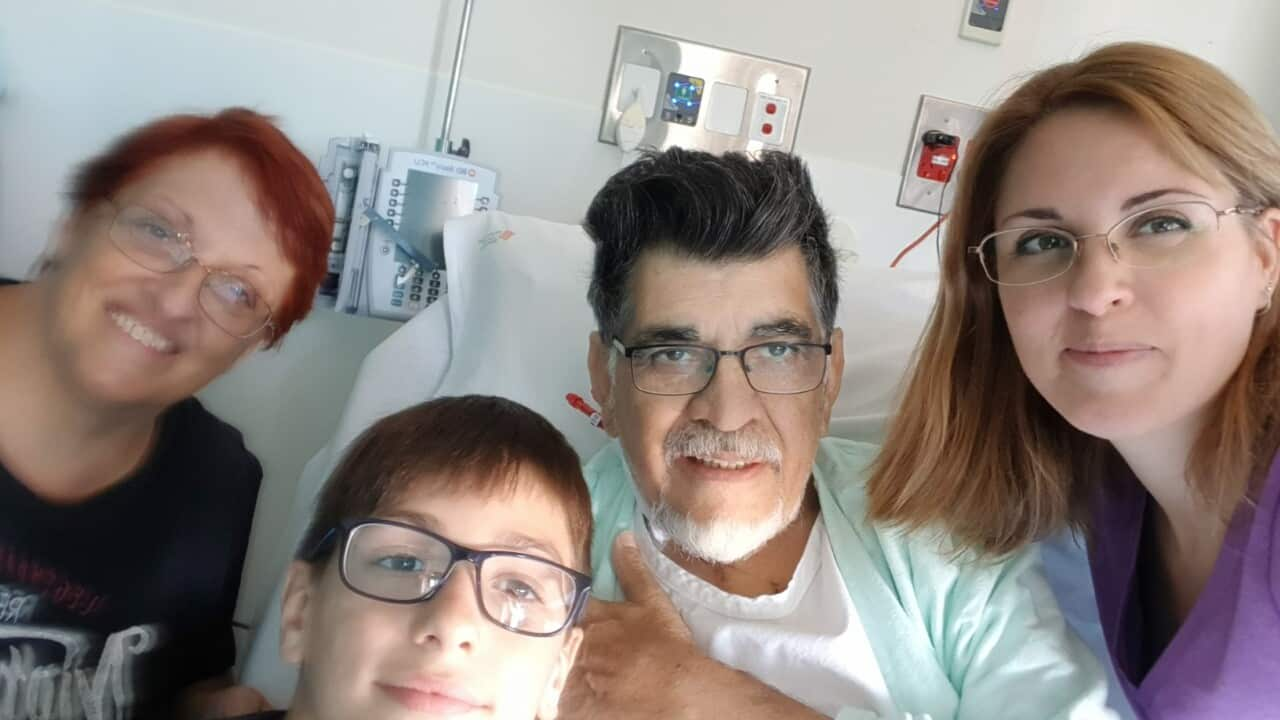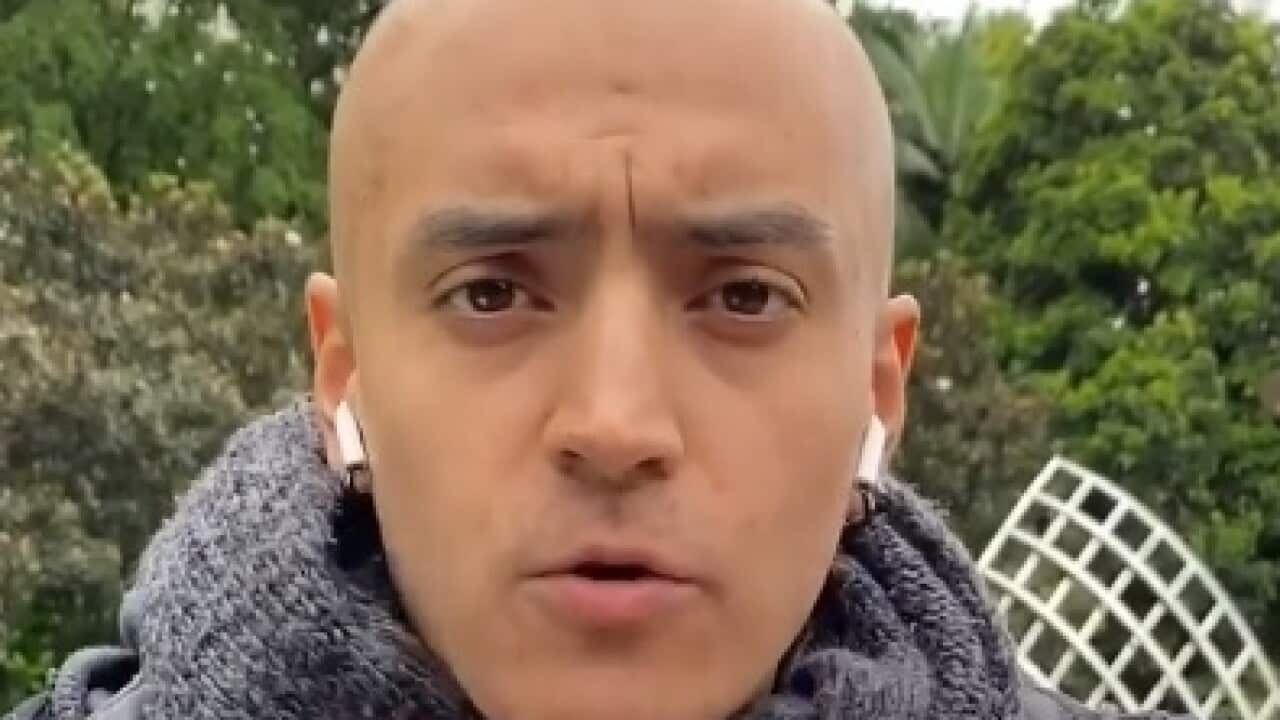After separating from her husband and finding herself without an income, Virginia Bellido turned to her parents for help and support.
The idea was for them to stay in Melbourne for some time and help babysit her two young boys, while she juggled English classes and completed a certificate in Aged Care, so she could earn a living.
But three months after her parents' arrival, her father, Carlos, became seriously ill with a blood infection of unknown origin.
Blood tests detected an abnormal white blood cell count, which prompted specialists to recommend immediate life-saving surgery, as a bacterial infection had reached his heart.
Fearing that she would not be able to afford the high costs of surgery in Australia, Virginia hoped that her parents would be able to return to Argentina where the surgery would’ve been free.
But due to the severity of Carlos’ infection, the family was advised that travel was not an option.
Highlights:
- Bupa’s standard travel insurance has limited coverage for heart problems, leaving Virginia Bellido with a bill exceeding $100,000 for her father's heart surgery.
- Virginia desperately wants to pay the bill, so she has launched a GoFundme campaign while arguing her case with the insurance company. Bupa has said it will review the Bellidos' case.
- When buying tourist health insurance, it is advisable to choose well, according to the person's situation and need, and above all, to read the small print.
“[The doctors] told me he wouldn't be able to travel. They stressed the most important thing was to save his life,” Virginia told SBS Spanish.
“They said there would be time later to talk about money."
Virginia and her family feel grateful for the high level of care Carlos received while in hospital, and stress they wish to repay them. However, the family worries that health provider Bupa is refusing to cover the full cost.
"He was [hospitalised] in Frankston and Alfred Hospitals in Melbourne for 50 days. Now we're in this mess with Bupa. While they agreed to cover 100 per cent of some costs, they’re only covering 20 por cent of the whole accommodation cost," Virginia explains.
"[Accommodation costs] about $1500 a day, and the days he stayed in the coronary unit are $4500 a day, and they’re only covering 20 per cent of that."
The Bellidos now have a debt of more than $100,000 and have turned to a GoFundMe campaign to gather funds.

The Argentine tourist has been left with a huge debt. Source: Supplied
“The blood infection was not a pre-existing issue, and the doctors determined that it was not pre-existing," Virginia says.
Back in July 2019, Carlos had surgery in Argentina, to have an animal valve implanted in his heart. But doctors there had given him green light to travel to Australia.
"The problem was that [the blood infection] affected the animal valve and the antibiotics didn't work. They had to operate on him again, open him up, and clean out all the infection he had in his heart, in the valves, and give him another valve replacement."
Tourist insurance and the fine print
Virginia decided to go with Bupa Standard Tourist Insurance for her parents, at a cost of about $35 a week, which is the most basic and cheapest coverage provided by the insurer.
The policy states that it has restrictions on coverage for treatments relating to heart research and treatment, heart-related conditions and heart diseases.
"It's unclear because the policy says vascular is restricted. So, when you go to see what restricted means, it is that they only pay, let's say, what the government pays as a minimum," Virginia claimed.
The doctors "signed that it is not pre-existing,” Virginia says.
“I have proof from Alfred Hospital, from Frankston Hospital and from the GP, saying it is not pre-existing. But then who determines if it is vascular or not?, it’s BUPA.”
"I wrote to them requesting they explain how this works, as I don't understand why they’re only covering so little, when his illness had nothing to do with the heart. Even though he had heart surgery, the whole problem came from something else that was not pre-existing,” she adds.
"He was hospitalised because he was given antibiotics to eradicate that infection, which was attacking his whole body. After all, it was in his blood."
The treating hospitals have not pressured the family to pay, but Virginia and her father feel a deep sense of responsibility and want them to be compensated for the services provided.
"We are looking at ways to pay them in some way. It's hard to pay the bill … but we'll find a way.
“I don't know exactly what the future will be like," Carlos says, as he recalls that when they saw the bills, they felt like they had been “punched in the face.”
Bupa's position
In several emails to SBS Spanish about the case, Bupa said:
"We cannot discuss this member's individual situation until they receive their consent. We can say that we pay benefits according to our members' policies based on the clinical information provided by the doctors and surgeons who treat them."
"From time to time, a member, their treating physician, or their hospital may provide us with additional information that may lead us to change the classification and allow us to pay benefits differently," the insurer added.
"But this is consistent with our commitment to pay benefits to which members are entitled under their policy."
The insurer also said it was “willing to investigate” the case further to verify whether it was correctly classified.
Although Bupa emphasised that the company is "sensitive to the needs and circumstances of its members," Virginia feels the opposite, having tried to call and talk to company representatives on several occasions to no avail.
"At first, I felt that they didn't want to answer me. I called them about 10-15 times, and I was always put to a different person. They always said they ‘couldn’t answer’, as they ‘needed to consult further with an outside team regarding case’, that they were going to call me back, but they never did.
"Then they said that they were going to cover it, so we felt like we could breathe again. But then, the bills were not being paid. Then, I called about five or six times. They didn't answer my calls. After a month or two, they wrote to me saying that they weren’t covering these costs because it was a vascular problem, and they only covered the minimum.
"I spent a lot of time trying to talk to them. I was only able to talk two or three times. On top of that, I went to the offices, they could not say much because they had to speak to someone else. Then the offices closed because of the coronavirus."

Carlos Bellido in hospital folliwng the operation. Source: Supplied
'Go back to Argentina'
In desperation, Virginia sought assistance and advice from the Argentinean consulate in Australia, but feels they weren’t too helpful.
"They told us that they do not give economic aid for these cases. They told us that Argentina does not provide any financial assistance, that we would have to find out how pay in instalments, and to hire a lawyer. It wasn’t much help," she said.
Furthermore, Virginia claims they advised her to “go back to Argentina and not to pay the debt".
SBS Spanish contacted that consulate but has not received a response.
ACCC recommendations
The Australian Competition and Consumer Commission (ACCC) recommends customers to know their options and needs when choosing private insurance, and to compare prices and review the level of coverage.
In a 2004 report, the ACCC expressed concerns regarding the exclusions and limitations of health insurance policies.
Virginia says she now knows "to read the policy well from the start, and buy the most comprehensive plan, if one can afford it".






